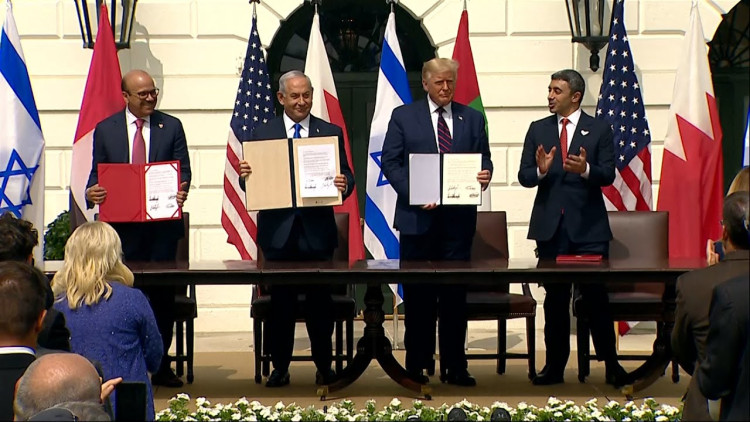Reflecting on the New York Times election swingometer this morning, I texted a Saudi-based friend, saying simply: It’s not good.
He replied by pasting an old proverb that I haven’t read in a while, The Chinese Farmer Story:
Once upon a time there was a Chinese farmer whose horse ran away. That evening, all of his neighbours came around to commiserate. They said, “We are so sorry to hear your horse has run away. This is most unfortunate.” The farmer said, “Maybe.”
The next day the horse came back bringing seven wild horses with it, and in the evening, everybody came back and said, “Oh, isn’t that lucky. What a great turn of events. You now have eight horses!” The farmer again said, “Maybe.”
The following day his son tried to break one of the horses, and while riding it, he was thrown and broke his leg. The neighbours then said, “Oh dear, that’s too bad,” and the farmer responded, “Maybe.”
The next day the conscription officers came around to conscript people into the army, and they rejected his son because he had a broken leg. Again, all the neighbours came around and said, “Isn’t that great!” Again, he said, “Maybe.”
My friend (who seems to have adopted a far more zen-like personality compared with the nihilistic worldview I remember from our university days 30 years ago) finished with another message that read:
The whole process of nature is an integrated process of immense complexity, and it’s really impossible to tell whether anything that happens in it is good or bad — because you never know what will be the consequence of the misfortune; or, you never know what will be the consequences of good fortune.”
Now, this might all sound a little woo-woo for a blogpost on communications and public relations, the day after an earth-shattering election. But those words did offer a moment to detach, just a little, from the rising fear of what a Trump presidency means for the world, and particularly the Middle East.
My colleague Ilija Trojanovic already wrote a very insightful blogpost last week on the Middle East’s perspective on the race. He challenged himself not to mention either candidate by name, which was a useful means of taking the partisan out of the politics and instead focus on the issues at hand, from the perspective of our region. Which is what we must all now do for real.
A top-line reading of the situation is that Trump is likely to extend even further the Biden administration’s strong support for Israel, which is unlikely to do anything for the chances of an Israeli-Palestinian peace process, if indeed there was any chance.
He seems likely to also give Israel a blank cheque on Lebanon, Yemen, and Iran, the latter of which especially could escalate an already dangerous situation to new heights.
These are all major concerns that affect the lives of many people who have already suffered unimaginable hardships.
But... But… the Gulf’s rulers and business leaders already know all this. They’ve dealt with Trump before and understand his brand of transactional politics. At the recent Future Investment Initiative (FII) summit in Riyadh, the feeling in the room was that most had already priced in the implications of whoever would win. There was less speculation and more preparation for dealing with the opportunities and realties of whichever scenario would present itself.
It helps that our rulers here are broadly aligned on most major issues, publicly at least, and have gone to great efforts to lower tensions generally, and specifically with Iran. They know there is no magic wand to fix any of the geopolitical crises that beset this region. And it’s not as if relations with the Biden administration ever got beyond lukewarm at best. Moving forward the issues here must continue to be managed, day by day, whoever rules the roost in Washington (or Moscow, Brussels or Beijing for that matter).
So, with that in mind I will try to follow this realpolitik school of thinking, which also brings us back to that Chinese proverb. Ultimately, my personal views on POTUS 47 have no bearing on how the future will actually unfold. The world is complicated. This region even more so. We have no idea what the implications of a Trump presidency will be for our region.
Let’s all take a deep breath and proceed, as calmly as we can, step by step.






